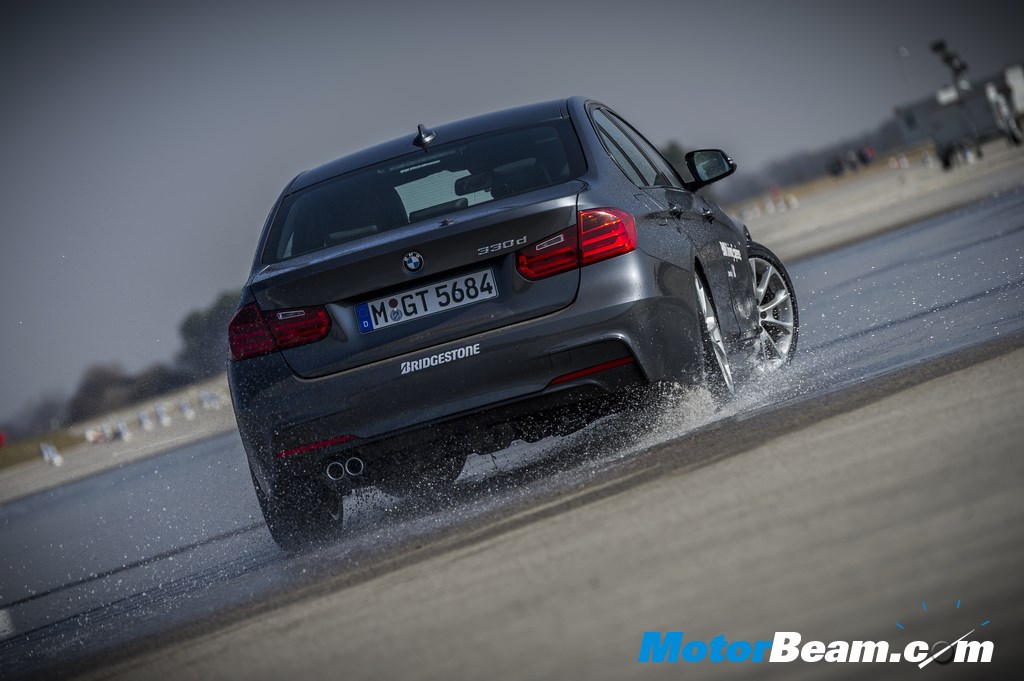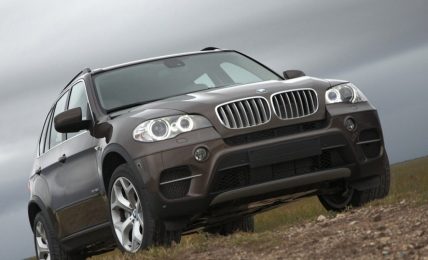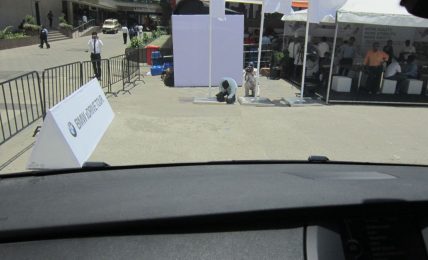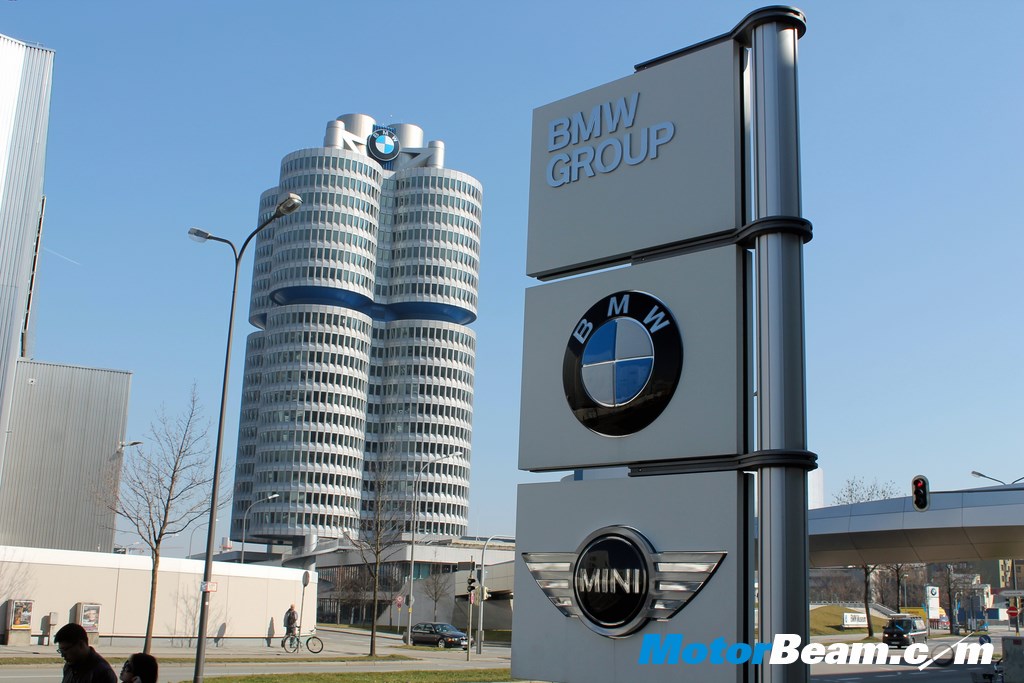
BMW, the German manufacturer has a age old history of producing vehicles with sharp driving dynamics going well with its tagline of ‘Sheer Driving Pleasure’. Based in the city of Munich, BMW has a rich history to boast off. Earlier this year we had an opportunity to visit the BMW headquarters and the entire experience was nothing short of a treat for the auto buff. The BMW headquarters is designed in the shape of 4-cylinders by renowned architect Karl Schwanzer. Adjacent to the main building is the plant which came into operation in 1951. This fully functional plant churns out about 1000 engines and the same number of cars each day. The company’s most successful model, the 3-Series came into production here in 1975 and since then this plant has produced all the 6 generation of the 3-Series.
The BMW Welt building
The BMW plant uses advanced processes and employs more than 9000 people from around the world. Just opposite the plant is BMW Welt. Welt is the place where you can experience all the brands under the BMW stable such as BMW, MINI, Rolls-Royce, BMW Motorrad and the BMW M and BMW i sub-brands in an interactive manner. Customers can take delivery of their BMW cars from Welt and an average day sees up to 160 cars being delivered to customers from around the world. Welt genuinely works as a place where you can experience BMW in the true sense of the word. Attracting more than 2 million visitors a year, the BMW Welt is also Bavaria’s top attraction.
The BMW Museum stores over 120 original exhibits
Situated adjacent to the plant is the BMW Museum and the place which will make enthusiasts skip a beat for sure. The BMW Museum houses over 120 original exhibits from the German company’s over 90 year old history. Opened in the year 1973, it is one of the oldest automobile museums in Germany. The BMW Museum’s exhibits cover various genres such as aircraft engines, motorcycles, cars and motorsport. The museum along with the ‘Four Cylinder’ headquarter was designated as a national monument in 1999. It also has a merchandise shop where visitors can buy vintage brochures, merchandise, scale models, etc. Here are some snapshots from the BMW Museum.
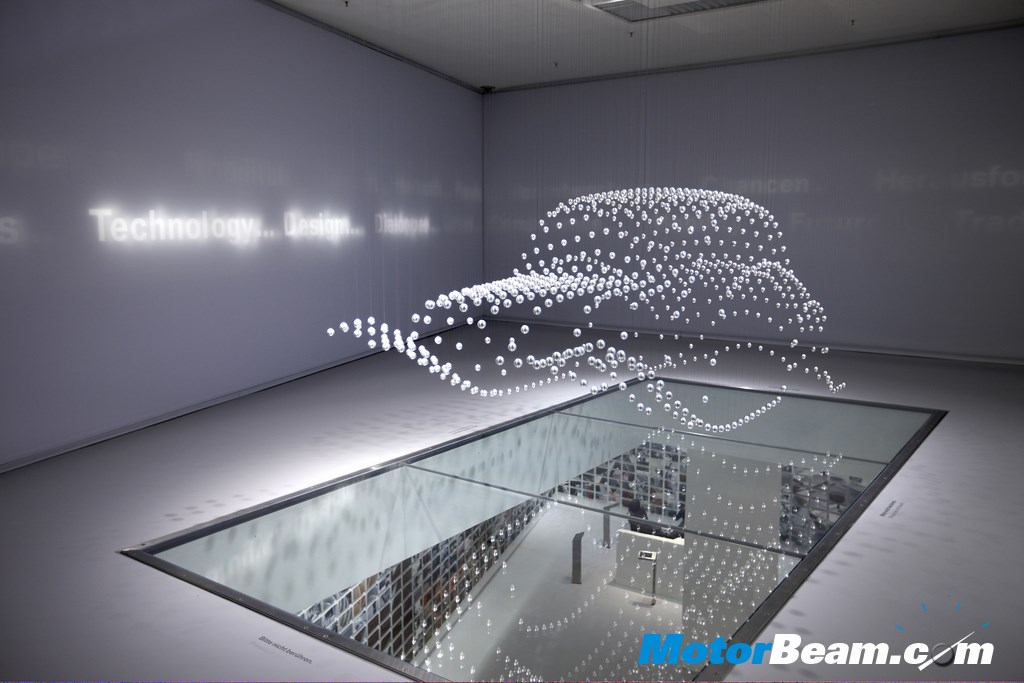
More than 700 kinetic spheres are suspended and take the shape of cars from all the generations. A very pretty sight.
The first few aircraft engines made by BMW
BMW got into making airplane engines. This double blade in-line 6-cylinder engine took planes to heights of about 10,000 feet above sea level. This water-cooled engine produced around 250 BHP of peak power.
The ‘Dixi’ was the first car produced by BMW
The ‘Dixi’ was the first car made by BMW. With an output of nearly 15 PS, it would reach a top speed of 75 km/hr.
The 1972 BMW Turbo (E25)
That’s the 1972 BMW Turbo (E25). Ahead of it’s time, the E25 boasted of a crisp aerodynamic design with gull-wing doors. The car is painted in a way which gives it a look as if sunlight is falling on it.
The first motorcycle produced by BMW
Produced in 1921, the R32 was the first motorcycle produced by BMW. The 486cc engine produced 8.5 BHP and had a top speed of 95 km/hr. While many motorcycle manufacturers used total-loss oiling systems, the new BMW engine featured a recirculating wet sump oiling system, the same technology was in use till 1969.
The 1939 BMW 328 was built on an aluminium chassis
The 1939 BMW 328 was a sports car made between 1936 and 1940. Powered by a straight-6 and mated to a 4-speed transmission, it could reach a top speed of 150 km/hr. It was extremely light weight and was built on an aluminium chassis.
BMW has been a part of Formula 1 before quitting the sport at the end of 2009
The 1983 Brabham BT52 was driven by Nelson Piquet. This was the first turbo powered car to win a Formula 1 World Championship.
Nick Heidfeld’s 2006 BMW Sauber
Mounted on the wall is the 2006 BMW Sauber F1 car which was piloted by Nick Heidfeld. BMW engines had a significant horse power advantage over their competitors in the 2000’s.
The 1966 BMW 1600 was the predecessor of the 3-Series
Produced between 1962 to 1977, the 1966 BMW 1600 was perhaps the most important car for BMW as it was the predecessor of BMW’s bread and butter model, the 3-Series.
The entire 3-Series history in one frame
All the generations of the 3-Series parked together.
Entire BMW badging is up on display
Badges of the models produced by BMW are displayed.
The 1937 BMW WR 500
The WR 500 in 1937 under the hands of Ernst Henne broke the world record for the highest speed achieved by a motorcycle. The record speed of 279.5 km/hr took another 14 years to be beaten.
The 3-Series (F30) in clay avatar
The current generation 3-Series designed from clay.
The 2009 BMW Vision EfficientDynamics
The Vision EfficientDynamics concept car was used in Mission Impossible 4 and part of the shoot was done in Mumbai itself. The concept car came into production in the form of the BMW i8.
The M Powered cars demonstrate the company’s love for performance
‘M’, the performance arm of BMW has generations of history, all of which is displayed at the M Power pavilion.
The 1955 Isetta is the cutest car in the BMW museum
Originally designed by the Italians, the Isetta or popularly known as the ‘Bubble Car’ was the highest selling single-cylinder car in its time. It is said to have delivered a fuel efficiency of nearly 34 km/l.
Front view of the Isetta
The Isetta’s production was later stopped owing to safety as it had only a single front opening door, which could be difficult to open in case of a front end crash.
The BMW Z8
The BMW Z8 was used in the 1999 James Bond movie ‘The World Is Not Enough’. The design was led by Chris Bangle’s team.
The only 8-Series ever produced
The BMW 8-Series was conceptualised but this is the only car ever produced. The project is reported to have been shelved on financial grounds.
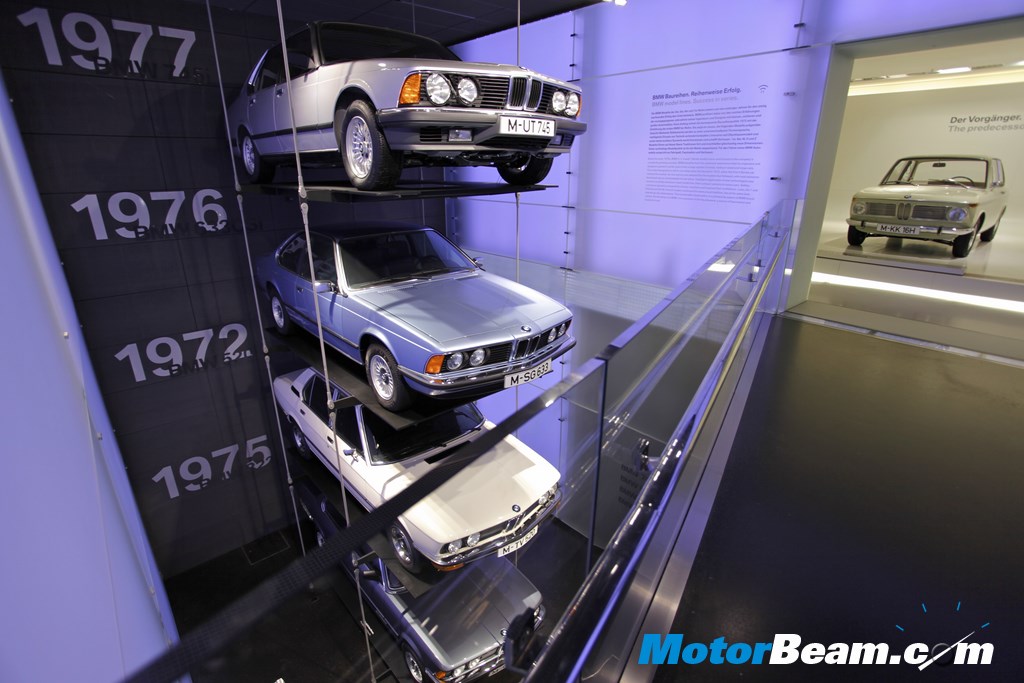
The 5-Series displayed.
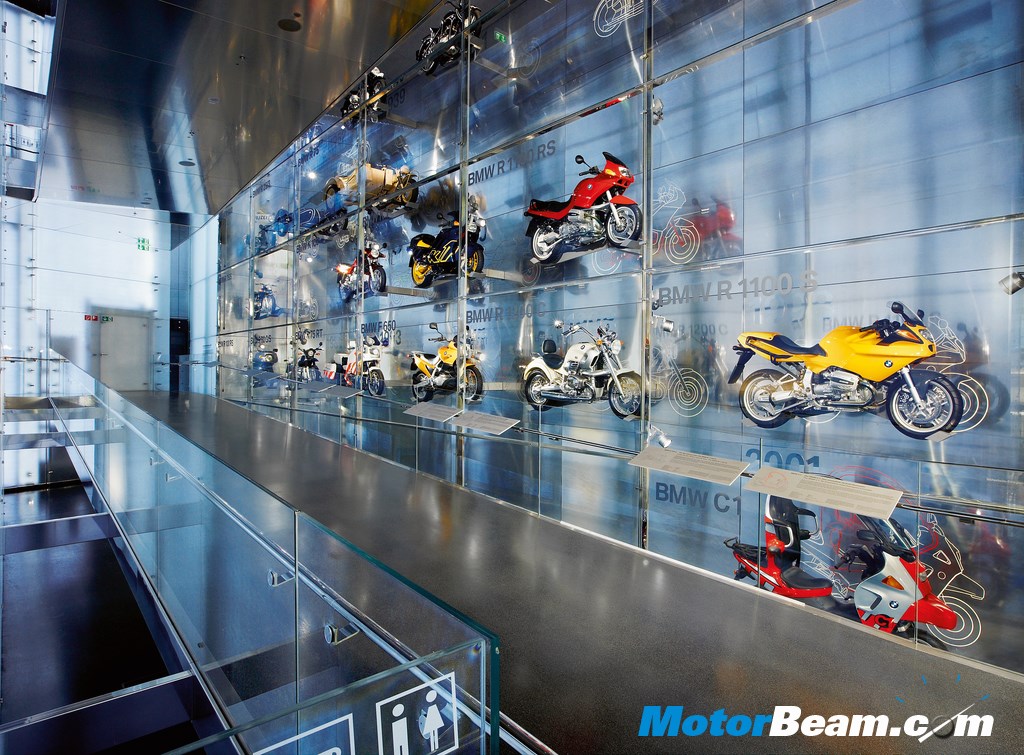
The famous ‘Wall of Motorcycles’ in the BMW Museum.
The 2011 BMW 328 Concept
Made of carbon fibre reinforced plastic, the 2011 BMW 328 concept was made to pay homage to the original BMW 328.
The Rolls Royce Wraith
The Rolls-Royce Wraith inside BMW Welt.
The delivery area in the Welt facility
Welt delivers up to 160 cars daily to customers from around the world. This is the designated delivery area inside Welt.
The BMW Motorrad pavilion
The entire lineup of BMW Motorrad motorcycles are displayed at Welt.
The MINI Pavilion
The MINI Pavilion in Welt showcases the entire MINI range. Featured here is the MINI John Cooper Works Paceman.
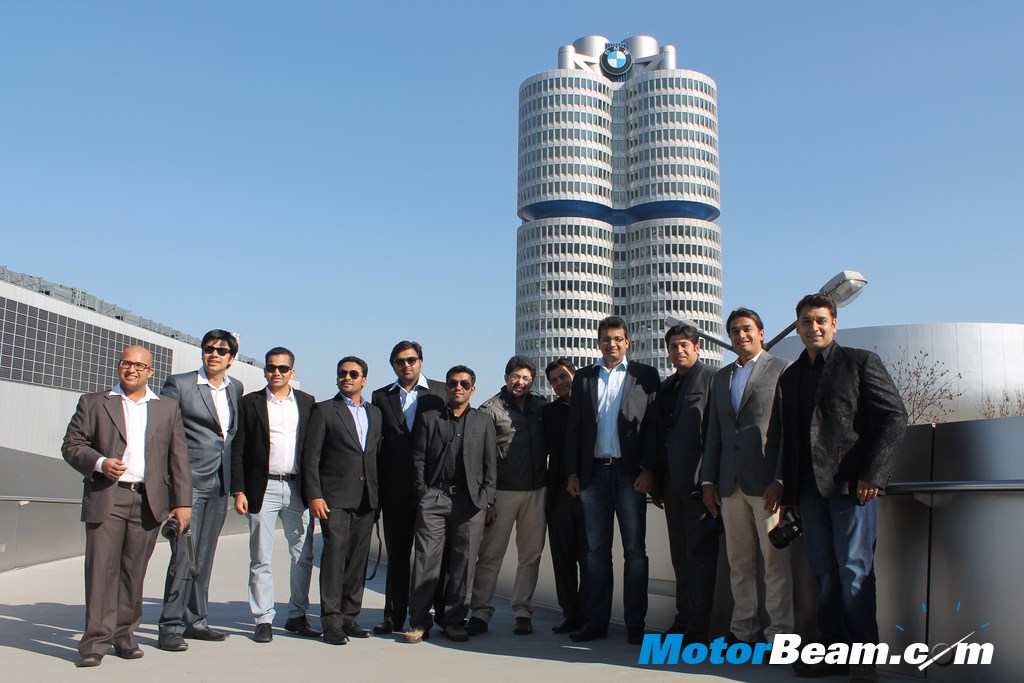
The entire group is all smiles at the end of the tour. Needless to say, it has been a brilliant day.


